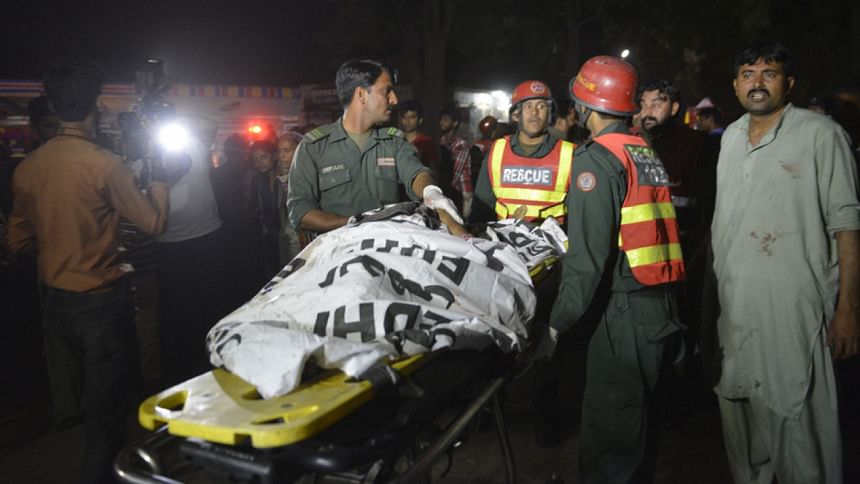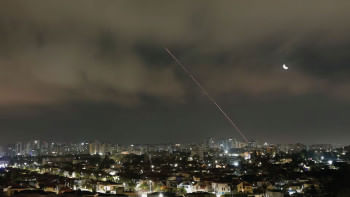Long war on the frontier

Suicide bombers belonging to Jamaat-ul-Ahrar set off explosions at a park in Lahore on Easter Sunday killing more than 70 people and injuring some 300. A spokesperson for the group claimed in a telephone interview with Washington post: "It was our people who attacked the Christians in Lahore, celebrating Easter…it's our message to the government that we will carry out such attacks again until Sharia [Islamic Law] is imposed in the country." The bombing happened in PM Nawaz Sharif's stronghold of Punjab and the city is home to the largest concentration of Christians living in the country. The group in question is one that split away from the Tehrik-i-Taliban Pakistan in August 2014 and rejoined the Pakistani Taliban and one that is responsible for a series of suicide attacks.
This is not the first time Jamaat-ul-Ahrar has targeted Christians. On March 15 last year, it took responsibility for twin bombings that targeted a Roman Catholic Church and Christ Church during a Sunday service at Youhanabad town in Lahore. That attack claimed some 15 dead. The group has been actively involved with the Afghani Taliban which has been waging a war to retake the country since losing power in 2001.
Many analysts believe Pakistan's woes got worse since the military launched its offensive to pacify the country's north-western tribal belt a year ago. The conflict in the region over the last decade has left some 50,000 dead and has galvanised terrorist networks in an effort to destabilise the country through regular attacks on both the military and civilians. The outfit has proved to be more effective than others in carrying out three attacks in the month of November, 2014. It has no qualms about going after "soft targets" as has been shown in the Lahore incident. What is perhaps worrying is the mounting evidence of the presence of the Islamic State (IS) in the country, as reported by international press.
A report carried by Newsweek in January, 2016 outlined that an investigation by federal law enforcement agencies had uncovered a small group of "government officials was discovered to have been collecting information for IS, allegedly because they supported its 'holy war' on the West." This of course opens up the wider question of financing terror and carrying out operations in Pakistan and recruitment of Pakistani nationals for IS's war in the Middle East. Despite the official stance of the government about the non-existence of IS on Pakistani soil, outright denial merely strengthens the hand of the outfit.
One cannot refute the fact that the continued military action in the north-western provinces is bearing fruit. According to military spokesman Major General Azim Bajwa, more than 2,700 terrorists have been killed in the first year of operation and another 200 or so killed in various Pakistani cities; thousands have been detained nationwide. While allegations remain that the Haqqani network has been spared the brunt of the government onslaught, the removal of safe havens for militant groups in the bordering areas is putting a dent in the transfer of money and resources through North Waziristan. And that is perhaps one of the biggest concerns since militant outfits could inevitably turn to the IS for support. The problem of being "aligned" with the IS of course will intensify sectarian violence, which has been part-and-parcel of IS strategy in Iraq and elsewhere.
One of the questions being asked today is why the Christian community was not given greater security. The fact that apparently there was no information on any impending attack rings somewhat hollow. In a country that has experienced a similar attack a year ago, that shows resolve on the part of some groups that have had no problems going after Christians, not, placing tighter security around congregations on such an important religious event would have been thought to be the logical thing to do.
Needless to say, the Pakistani government finds itself between a rock and a hard place. It has faced severe criticism from the West that it has been perceived to be soft on militants for too long. And now that it has gone after some of the home grown ones and the imported variety from neighbouring Afghanistan, the war has arrived at its doorstep. The military operations must continue on the border territories, unfortuntely despite the mounting casualties, mostly civilian. Security forces will have to contend with the reality that there will be future attacks, not just on Christians, but perhaps on other smaller religious sects and the State will have to step up protection for these vulnerable communities. But the hardest test will come when the Sharif government will have to act against all militant groups inside Pakistan. There is no such thing as "good" and "bad" militants. The war on terrorism has just begun and it is up to the government to take a strong stand or risk being consumed by the fires of extremism.
The writer is Assistant Editor, The Daily Star.

 For all latest news, follow The Daily Star's Google News channel.
For all latest news, follow The Daily Star's Google News channel. 



Comments